New Delhi : The Special Campaign 2.0 for Disposal of Pending Matters (SCDPM) and Swachhata Drive is going on in full swing in the Department of Health and Family Welfare and the Department of Health Research. The objectives of the campaign are to minimize pendency, institutionalize swachhata, strengthen internal monitoring mechanism, train officers in records management, digitize physical records for improved records management and to bring all ministries/departments on one single digital platform: www.pgportal.gov.in/scdpm22.
The SCDPM and Swachhata Drive was launched on 1st October, 2022 and is being implemented from 2nd October, 2022 to 31st October, 2022. Third Party evaluations will take place between 14-30 November, 2022, which will be followed by presentations of best practices on Good Governance Day on 24th and 25th December, 2022. Monthly progress of the campaign is being reviewed by Secretary, Department of Administrative Reforms and Public Grievances (DARPG).
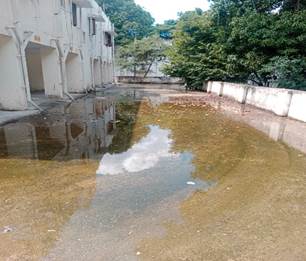
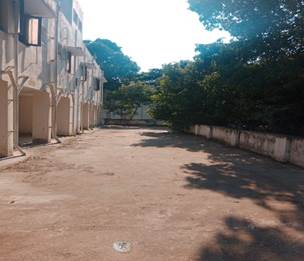
Before After
Swachhata Photographs (Jawaharlal Institute of Postgraduate Medical Education & Research, Puducherry)
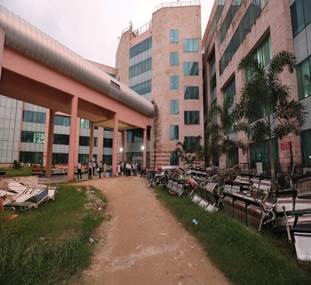
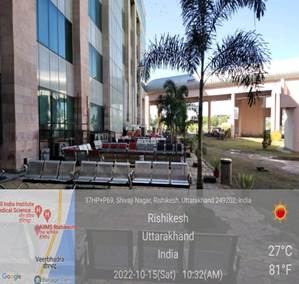
Before After
Swachhata Photographs (All India Institute of Medical Sciences, Rishikesh)
Under the Department of Health and Family Welfare, the Head Quarters of the Ministry of Health and Family Welfare (MoHFW) and its attached offices (DteGHS & NHA), 128 Subordinate Offices, 50 Autonomous Bodies and 1 Central Public Sector Enterprise are actively participating in the campaign. The campaign has also been extended to field offices of MoHFW. Regular reviews are being done by the Union Health and Family Welfare Minister, Dr Mansukh Mandaviya, Union Minister of State for Health and Family Welfare, Dr Bharati Pravin Pawar and Union Health Secretary, Shri Rajesh Bhushan to ensure efficient implementation of the campaign. A WhatsApp group has also been created for effective implementation of Special Campaign 2.0.
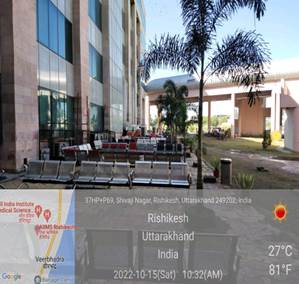
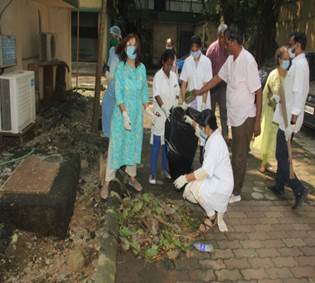
Swachhata Photographs (All India Institute of Physical Medicine and Rehabilitation, Mumbai)
Many institutes have undertaken best practices to enhance swachhata and provide clean and green environment in their campuses. In All India Institute of Medical Sciences (AIIMS) Bibinagar, Telangana, dry wastes and unused lands have been converted into gardens (AIIMS Vatika) and contaminated and dirty water reservoirs are being converted into fountains. Similarly, in National Institute of Tuberculosis and Respiratory Diseases (NITRD), New Delhi, mechanized cleaning equipment and sweeping machines have been installed for sweeping roads; and waste collection machine have been installed for collection of plastic wastes for recycling and incentive is given to users for putting waste into the machine. Likewise, other central institutes like AIIMS Rishikesh, AIIMS Mangalagiri, Andhra Pradesh, AIIMS Bhubaneshwar, National Institute of Public Health Training and Research (NIPHTR), Mumbai and All India Institute of Physical Medicine and Rehabilitation (AIIPMR), Mumbai, have also adopted similar best practices in their facilities.
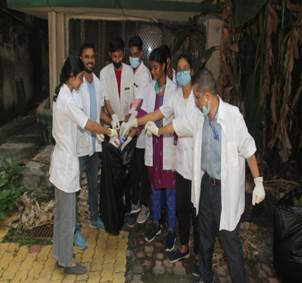
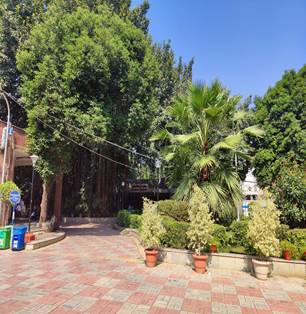
Green plants and pots placed to provide clean and green environment to patients and visitors (National Institute of Tuberculosis and Respiratory Diseases, New Delhi)
The Cleanliness Drive has been taken in full earnest by all divisions of the Department of Health Research as well as field level units and establishments. Active participation is being undertaken by 27 institutes of ICMR (along with its 10 field units and outstations), 80 Virus Research and Diagnostic Laboratories (VRDLs), 40 Multi-Disciplinary Research Units (MRUs) and 12 Model Rural Health Research Units (MRHRUs). ICMR has also launched a Special communication strategy to implement the initiative. It includes messaging through social media platforms, integration of stakeholders through awareness campaigns, writing of articles etc. Action has already been initiated for digitization of all physical files which are to be retained and after completion of this exercise, this Department shall strive for paper less approach. As a part of ‘Special campaign for Disposal of Pending matters’ (SCDPM 2.0) of GOI, Department of Health Research has reduced the pendency of important references such as MP references, Parliament Assurances, Public Grievances, PMO references. All the fields’ Units/Establishments under this Department have been asked to accord top priority to the Special Campaign and for implementation of Special Campaign 2.0 for disposal of pending matters.
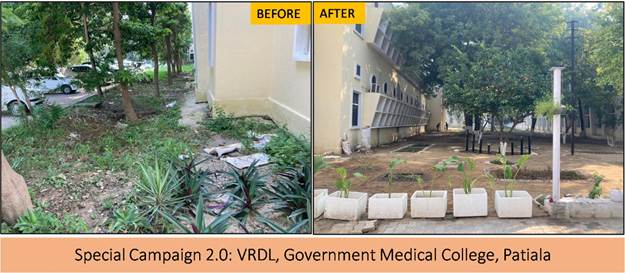
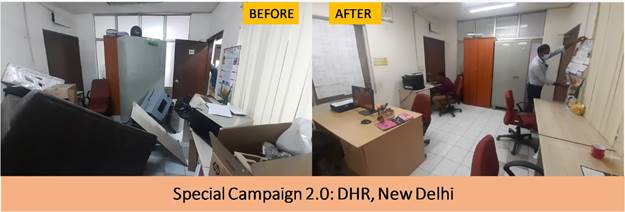
The campaign is being monitored through a dedicated Swachhata portal (https://cd.nhp.gov.in) created under the guidance of Union Minister of Health and Family Welfare and DARPG’s portal (https://pgportal.gov.in/SCDPM ) by uploading photographs and data. Daily photographs are being uploaded by the offices concerned. The data is being uploaded daily by IWS Unit, DoHFW, Nirman Bhawan.

Comments are closed.